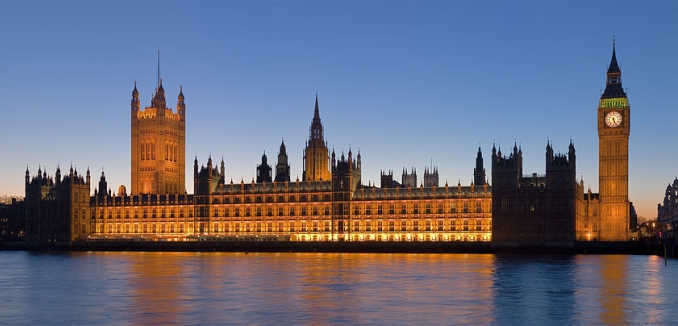The British parliament added three more Islamic terrorist groups to its blacklist of organizations and individuals. The opposition voted with the government to approve the addition of Ansar Bayt al Maqdis, Al Murabitun and Ansar al Sharia to the groups banned under the UK’s Terrorism Act.
Britain’s war against terrorism includes the white collar battlefield where the target list for Al Qaeda alone includes 218 individuals and 61 front organizations including many acting as Islamic “charities.” Britain bans the groups and individuals from its territory and freezes the assets of the terrorists designated not just by United Kingdom, but also by the United Nations and European Union.
The most notorious of the three, Ansar Bayt al Maqdis, is heavily active in Egypt and especially the Sinai Peninsula, carrying out scores of attacks that have left dozens dead. The group has repeatedly attacked Israel and claimed responsibility for multiple attacks on the Egypt-Israel-Jordan gas pipeline that preceded Egypt cancelling its contract with Israel.
“The British are concerned because they see more and more Europeans joining Al Qaeda and moving to fight in the region,” said The Israel Project’s Defense Analyst Stephane Cohen. “There is no doubt they are concerned that these jihadists will come home to bite them. You have many converts joining Al Qaeda in the region. It will be very difficult to profile these people and detect them when they go back as jihadists to England.”
Ansar al Sharia-Tunisia wants to establish sharia law in Tunisia and eliminate western influence. The group is ideologically aligned to al-Qaeda and has links to al-Qaeda-affiliated groups. Its leader, Seif Allah Ibn Hussein, is a former al-Qaeda veteran combatant in Afghanistan. He has been hiding following the issue of a warrant for his arrest in relation to the allegation that he incited the attack on the US embassy in Tunis that killed four people in September 2012.
Al Murabitun is the marriage of two al-Qaeda-in-the-Maghreb splinter groups that are active in Mali and Algeria, It aspires to unite Muslims from the Nile to the Atlantic, and has affirmed its loyalty to the al-Qaeda leader, Ayman al-Zawahiri, and the emir of the Afghan Taliban, Mullah Omar. Al Murabitun’s first statement threatened France and its allies in the region, and called on Muslims to target French interests everywhere.
The British move came on the heels of a decision by Downing Street to investigate the Muslim Brotherhood’s activities to determine if it too should be added to the blacklist, which includes not just Al Qaeda but also Hamas and Hezbollah along with their leaders.
[Photo: Wikimedia Commons]




